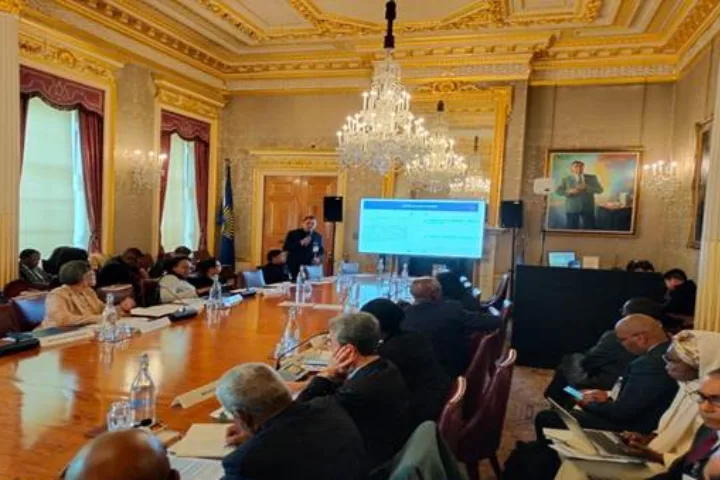The Commonwealth Secretariat has recognized India's Centralized Public Grievance Redress and Monitoring System (CPGRAMS) as a global best practice that other countries can adopt for the benefit of their people.
The presentation on India's redressal system was given by V. Srinivas, Secretary, Department of Administrative Reforms, at the Biennial Meeting of Commonwealth Officials on the theme: 'Smart Government to Enhance Public Service Delivery' with focus on adoption of AI in Governance. Institutionalization'.
PressNews24 provides latest news, bollywood news, breaking news hollywood, top tech news, business standard news, indian economy news, world economy news, travel news, mumbai news, latest news mumbai loksabha election 2024, video viral news, delhi news, Only at PressNews24.in
Ms Patricia Scotland Casey, Secretary General of the Commonwealth, said, “CPGRAMS is a state-of-the-art grievance redressal system and smart government best practice. The remaining 1.2 billion citizens of the Commonwealth can benefit from adopting the technology platform just as India's 1.4 billion citizens have benefited.”
Namibia's Civil Registration and Vital Statistics System (CVRS) and Identity Management System and Kenya's Human Resource Management and e-Citizen models were also lauded as future-ready governance best practices from across the Commonwealth.
The Forum brought together Commonwealth Public Service Heads, Cabinet Secretaries, senior public officials, industry champions and eminent scholars.
The primary objective of the meeting held between 22-24 April was to share contemporary knowledge, ideas and experiences on how to leverage technology to support the provision of e-services for optimal service delivery and the achievement of the 2030 Agenda for Sustainable Development. Can be picked up. Commonwealth. It also aims to share selected relevant case studies from some Member States and identify potential partnership and cooperation opportunities.
It was observed that there is currently a greater appreciation of the importance of digital government, which has led to the introduction of e-services in many jurisdictions.
Member countries ratified the CHOGM mandate that seeks to eliminate the digital divide and acknowledged the importance of transformative technologies such as Artificial Intelligence (AI).
Member countries have identified the Commonwealth Artificial Intelligence Consortium (CAIC) as a platform to lead capacity development work on smart government, which can be used for efficient redressal of public grievances, improving service delivery, strengthening integrity systems and procurement. Reforms can be undertaken effectively.
The meeting was briefed on the Commonwealth Center for the Business of Government, which aims to support capacity building initiatives for governments, promote good governance and facilitate the achievement of the 2030 Agenda for Sustainable Development.
The following actions were agreed upon and endorsed at the meeting:
The creation of a community of practice for Commonwealth public service leaders to enhance the exchange of knowledge and experiences.
To conduct a stocktaking exercise on the state of smart governance within Commonwealth countries and identify success stories as well as gaps/demand for digital services.
To chart a road map to facilitate the implementation of agreed actions at the country level by the next biennial meeting scheduled for 2026.
To share the work being done by the Commonwealth AI Consortium among members and to expand the number of members it currently reaches through its activities.
Sharing best practices in future-ready governance from across the Commonwealth.
Continuing provision of technical assistance to support the implementation of GAPP principles, including capacity building in government performance management.

